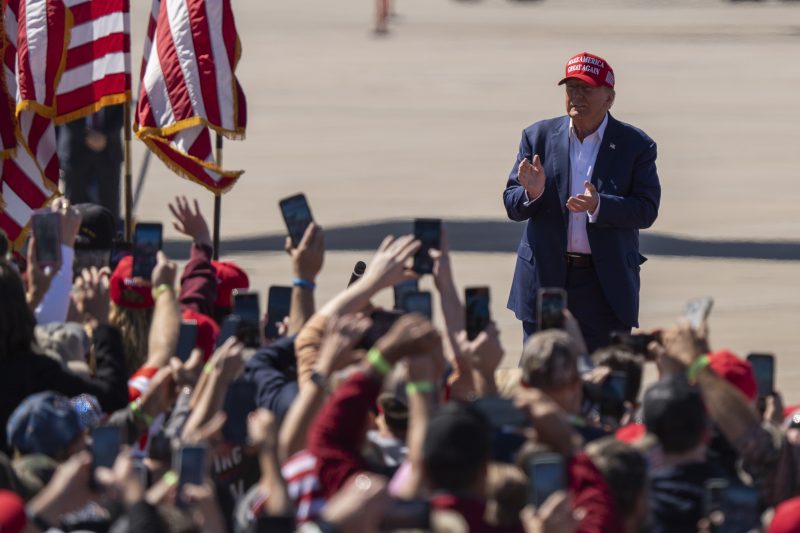The recent statement made by former President Donald Trump claiming that women love him has sparked discussions on the gender gap in public opinion towards him. While Trump’s assertion may be true for some female supporters, polling data shows a significant divide in how men and women perceive the former president.
According to various surveys and polls, women are consistently less likely to approve of Trump compared to men. This disparity has been a notable trend throughout Trump’s presidency and continues to manifest even after his term in office. The data indicates that Trump’s approval ratings among women have remained lower than those among men, reflecting differing attitudes and perceptions based on gender.
One possible explanation for this gender gap in opinion could be Trump’s controversial statements and policies that have been criticized for their perceived impact on women’s rights and equality. Trump’s stances on issues such as reproductive rights, gender equality, and his treatment of women have drawn criticism from various quarters, leading to a more negative perception among female voters.
Additionally, Trump’s brash and unconventional style of communication may also play a role in shaping women’s views of him. His rhetoric, often characterized by aggressive language and demeaning remarks, has alienated many women who find such behavior inappropriate and disrespectful. This could contribute to a deeper divide in how men and women view Trump as a political figure.
Moreover, the #MeToo movement and increased awareness of sexual harassment and gender discrimination have prompted heightened scrutiny of public figures like Trump, who has faced multiple allegations of sexual misconduct. These factors could further contribute to women’s reservations about supporting Trump and affect their overall perception of him.
Despite the gender gap in Trump’s approval ratings, it is essential to acknowledge that there are women who continue to support and admire him for various reasons. Trump’s base includes a significant number of female supporters who appreciate his policies, leadership style, and political positions. This diversity of viewpoints among women underscores the complexity of political opinion and the individual factors that shape attitudes towards public figures.
As the debate on Trump’s popularity among women continues, it is clear that the gender gap in public opinion remains a significant factor in shaping political dynamics. Understanding the nuances of this divide can provide valuable insights into the diverse perspectives that exist within the electorate and the complex interplay between gender, politics, and public perception.


























